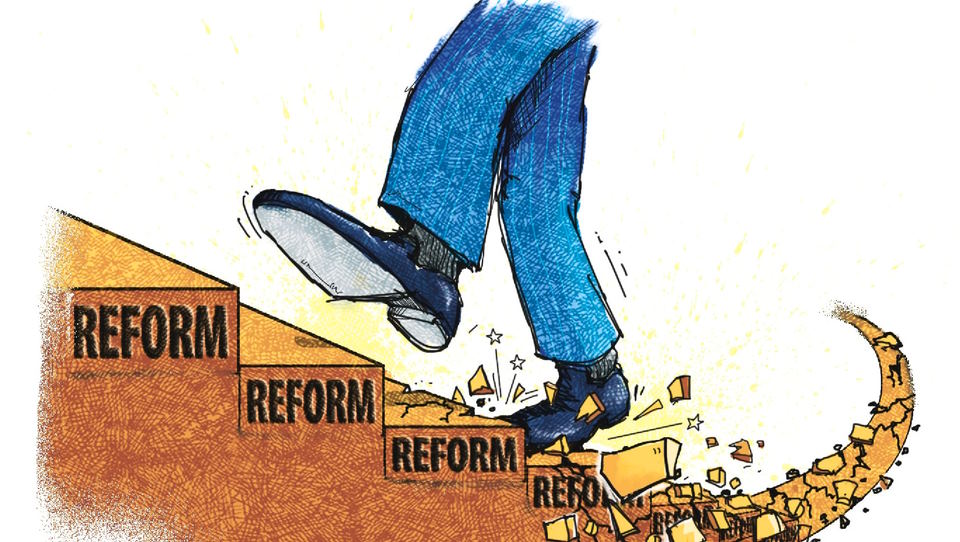
The Need For State Policy Reform To Improve Communities
It is clear that state policy reform is sorely needed to improve communities in numerous ways. For too long, outdated and insufficient policies have been creating an imbalance between social mobility, racial equity, and economic opportunity for many states across the nation. Progressing away from these obstacles requires attention to what needs to change for local governments to serve their constituents better and allow them greater access to justice and the opportunities they deserve. Unfortunately, all too often policy makers remain unaware of critical issues or view controversial reforms as an unnecessary problem when attempting to address a plethora of imbalances found within our society; However, instituting meaningful protection through laws that promote essential rights can result in improvements felt by individuals born into underserved communities while also providing mechanisms necessary towards addressing inequalities which prevent it’s members from achieving self-sufficiency.
The effects of state policy reforms on communities
On the one hand, certain policy reforms can help to reduce poverty and promote economic development in an area. For example, tax incentives for businesses may encourage more companies to open in the region, increasing employment opportunities for local residents and increasing incomes. In addition, government investments in infrastructure, such as public transportation or improved roads, can make it easier for people to access jobs, goods, and services.
On the other hand, some policy reforms can have a negative impact on communities if they are not properly implemented. For instance, changes to zoning laws that allow developers to build high-density housing in previously low-density neighborhoods could drive up real estate prices and displace existing homeowners or renters who can no longer afford to live in the area. Similarly, state policies that reduce or eliminate funding for public services such as health care and education can negatively impact vulnerable populations who rely on these resources.

Overall, policy reforms can bring about both positive and negative changes in communities, depending on how they are implemented. Therefore, it is important for governments to carefully consider the implications of their decisions when designing policy reforms so that they maximize the potential benefits while minimizing any unintended consequences.
Additionally, government officials need to consult with local residents and stakeholders when crafting policy reforms since they may provide valuable insights into how specific policies could affect their community. This way, governments can ensure that any reform measures taken are truly beneficial to all community members. By working together, governments and residents can ensure that policy reforms lead to positive community changes.
Finally, governments need to monitor the effects of their policies over time to ensure that they are achieving their desired outcomes. For example, if a policy appears to be having an adverse effect on a certain group of people or the environment, it should be revised accordingly. This way, government officials can ensure that any policy reform measures taken benefit the entire community. These steps will help ensure that state policy reforms positively impact communities in the long run.
The top state policy reforms that will improve communities
- Increasing the minimum wage – increasing the minimum wage can provide a much-needed boost to workers in low-income communities, who often struggle to make ends meet with their current wages. This can also lead to an increase in economic activity, as people are more likely to spend their additional income on goods and services.
- Investing in infrastructure – investing in infrastructure projects is a great way to create jobs, generate long-term economic growth, and support local businesses and families. In addition, building roads, bridges, schools, and other public works can benefit entire communities by providing better access to transportation and educational opportunities.
- Promoting affordable housing – incentivizing businesses or developers to build affordable housing helps reduce homelessness and promote economic mobility. Affordable housing can also provide families with more options for where to live, which can open up access to new job opportunities and other services.

- Strengthening public education systems – investing in public education is essential for providing children with the skills and knowledge they need to succeed in life. Increasing funding for schools, hiring qualified teachers, and ensuring students have access to technical resources are all important steps toward strengthening public education systems on a state level.
- Revising criminal justice reform policies – reforming criminal justice laws can help reduce recidivism rates, improve fairness in sentencing policies, and create better outcomes for individuals who have been wrongfully convicted of crimes or those who are currently incarcerated. It’s also important to ensure that individuals coming out of prison have access to the resources they need to reenter society successfully.
- Supporting small businesses – offering tax credits or other incentives to help small businesses with their start-up costs can boost job creation and increase local economic activity. Small business owners often rely on these programs to get their businesses off the ground, and providing additional support can encourage more entrepreneurs to take the plunge and start a new business.
- Investing in renewable energy sources – transitioning away from traditional sources of energy towards clean energy is essential for protecting our planet’s future. In addition, investing in renewable sources like solar and wind power helps create jobs while reducing air pollution levels and improving public health outcomes.
These state policy reforms can make a big difference in communities across the country. By investing in these strategies, states can create healthier and more prosperous places to live for all citizens.
